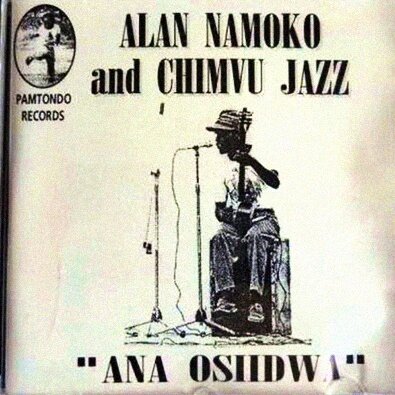“Mahmoud Guinia (Arabic: محمود ﯕينيا, and rarely ﯕنيا or کانية also spelled Gania, Guinea or Khania; Born 1951), is a Moroccan Gnawa musician, singer and guembri player, who is traditionally regarded as a Maâllem (معلم محمود ﯕينيا), i.e. master.”
Wikipedia then tells us that:
“Gnawa music (Arabic. غْناوة or كْناوة) is a north african repertoire of ancient African spiritual religious songs and rhythms."
You might be familiar with the guembri since we have featured American bassist and guembri player Joshua Abrams (here and here and here).
I first came across this album (and then searched out all the Mahmoud music I could from there, which led me to the Arab Tunes post) at the fantastic Moroccan Tape Stash site from a post that immediately grabbed my attention with the title: “Most Psychedelic Gnawa Tape Ever.” That post tries to introduce us to what lie ahead by saying:
“one of the strangest Gnawa cassettes I've ever found. Picked this up around 2001 in Essaouira. Nothing about the j-card gives a clue about the psychedelic grooves contained within.
Sounds drop in and out: Indian tabla and bol drum syllables, jaw harp, darbuka, English recitation, guinbri, gong, digeridoo, and various other sounds. But the texture never seems cluttered - all sounds have plenty of space to breathe. I'd love to know more about this album and who collaborated on it! (Especially, who in the world is doing the English recitation!)
Mahmoud's singing is fantastic - relaxed, often in the lower register. Some of the tracks are built around songs from the Gnawa repertoire (tracks 1, 5 and 6), while others appear to be original to this project. The English recitations are riffs on the Arabic lyrics (or vice versa). And ever think you'd hear Mahmoud sing in fus7a (Standard Arabic)? Check track 8!
Despite the fact that the serial number on the cassette shell matches that of the j-card, none of the listed song titles have anything to do with the songs on the cassette.”
Track titles here are my own:
1) Jilali Bouâlem
2) Lâayoune Dahika
3) Jwedi ya Jwedi
4) Allah Yuhibb Alkurama
5) Fofo Denba
6) Berrma Nana Soutanbi
7) Alhubb Wahid Wa Eddunya Wahida
8) Africa Muwahhada
9) Alhaqiqa
10) Al Umm
If that doesn’t interest you, you might be at the wrong music blog. You can see a different tracklisting at the tape’s Discogs page. Discogs also shows the tape as being released in 1999, though my files say 2000.
Lyrics switch between Arabic and English. Mouth harp floats in and out of focus while ambient noises add texture to the driving percussion and the ever-present guembri, driving the music forward to nowhere in particular. But it’s not meandering music, the longest track is just over four minutes while most are in the three-minute range. Just when you think you’ve identified all the elements or locked in to the groove, it vaporizes itself, only to immerse you all over again.
Stream the album here or download as one file (see links below to download the tape as separated song files).
























